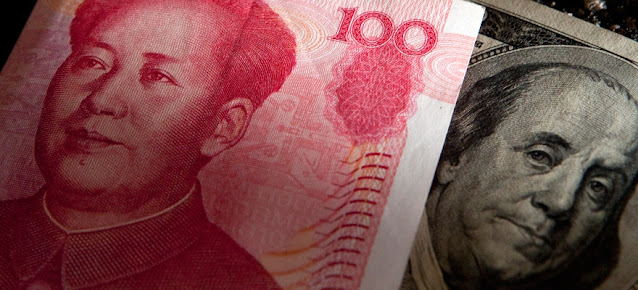Forex Training: China’s Interesting Relationship with FX Trading
China maintains a very tight grip on the foreign exchange (forex) market. The country completely banned forex margin trading and imposed heavy restrictions on other FX market activities.
Chinese individuals can only trade foreign currencies through commercial banks, without receiving any leverage. Also, there are strict annual limits on the purchase of foreign currencies.
Despite these limits at a domestic level, many offshore brokers are offering margin trading services to Chinese investors, taking advantage of some loopholes in the law. These brokers usually offer services by moving Chinese retail traders’ money to offshore accounts. Many even specifically target Chinese individuals with already parked money overseas.
They usually argue that they operate with overseas regulations and keep clients’ money safe. Many of these brokers even argued that internet trading has no limits and China does not specifically ban their services.
The demand for the low-key Chinese retail forex trading market is so huge that it prompted many established international brokerage brands to expand their operations in mainland China. Most prominently, MultiBank Group acquired all Chinese clients of AETOS in 2019, while many other brokers are making key appointments to oversee Chinese businesses.
Reuters once reported that retail forex trading in China each day averaged about $31 billion in 2016, which is a 6 to 7 percent share of the entire global market.
>>> Forex quote: Rupee pares losses to close higher by 9 paise at 74.37
Recommend for you:
👉Visit: "Forex AI for the Mind"
💧This program will give you the most advanced Forex signals that will never let you down
💧 provides traders with updated trading signals every 15 minutes on several timeframes
💧 Every user will have access to information and training videos to help them grasp system, mainly on how to gain practical benefits from it. This course starts with essential trading instruction, then moves on to the automated program and explains how to understand the signals generated by the system. It may also contain expert advice, advanced tactics, and regular webinars hosted by the product's designers. This amount of knowledge is manageable and each trader can acquire a specific skill set from this training, generating huge profits.
TRADE COMMAND CENTER
Regulators Are Taking Notice
However, all of that is changing as Chinese regulators are getting more strict with their laws around foreign brokerages.
“The Internet knows no national boundaries, but there must be national boundaries for financial licenses. Cross-border financial service providers cannot operate without a license,” China’s forex regulator, State Administration of Foreign Exchange (SAFE), said in a statement a few years earlier.
The same stance was reiterated recently by a high-ranking Chinese central bank employee for all of the foreign brokers taking clients from the mainland.
“Financial licenses have national boundaries,” Sun Tianqi, Head of the Financial Stability Department of the People’s Bank of China, said. “Overseas institutions with only overseas licenses conducting business in mainland China are [an] illegal financial activity.”
While these warnings directly alarmed the operations of stock trading platforms like UP Fintech and Futu, they could take down forex trading platforms. Moreover, the operations of these brokerages might be affected by the country’s data privacy laws that will come into effect this month.
Control over the FX Market



